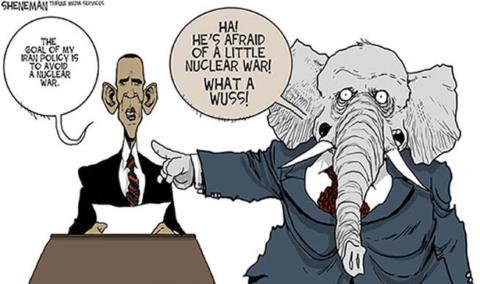 I watched the fourth season Game of Thrones over the last two days. It is not as good as previous seasons, I think. The biggest problem is that there are a lot more action sequences and I frankly don’t think they are well directed. They are trying to render huge scenes, but they are still ultimately limited to one on one combat. So there is a disconnect. Also, the characters seem only to get more psychopathic over time. Even little Arya is beyond a mercy killing. (You have to question what the point of vengeance is if it will just turn you into the people you hate.)
I watched the fourth season Game of Thrones over the last two days. It is not as good as previous seasons, I think. The biggest problem is that there are a lot more action sequences and I frankly don’t think they are well directed. They are trying to render huge scenes, but they are still ultimately limited to one on one combat. So there is a disconnect. Also, the characters seem only to get more psychopathic over time. Even little Arya is beyond a mercy killing. (You have to question what the point of vengeance is if it will just turn you into the people you hate.)
But I want to discuss three issues that came up for me while I was watching the show. Let me start with a kind of pleasant one. There are only two main characters who are consistently likable. And they just happened to be the book worms: Tyrion Lannister and Samwell Tarly. One is a dwarf and the other is fat. But if the series has heroes, they are them. I’ve noticed this among any number of other writers. I think it is very common for writers to be book worms, short, and fat. So who better to be the only characters in a psychopathic world who have empathy. This is probably the only way that Game of Thrones is true to reality. That, and the fact that dragons don’t really discriminate between sheep and humans.
The primary story in the fourth season is the murder of King Joffrey and the trial of Tyrion for doing it. But here’s the thing: everyone knows that Tyrion didn’t do it. And in particular, his sister and father use the murder to frame him just because they don’t like him. That’s all fine — that’s done every day in America. But in so doing, they aren’t the least bit interested in who actually did kill the little tyrant who all viewers were thrilled to watch die. But why is this? As I said: this happens all the time. Why do people react to injustice (not that Joffrey’s death was an injustice in an objective sense) with an irrational anger rather than a desire for, you know, justice? I really don’t understand — at least apart from the observation that people are irrational. And if that’s the case, the cause of justice is doomed.
My biggest problem with both and third and fourth seasons of Game of Thrones is the story of Ramsay Snow and his sadistic torture of Theon Greyjoy or “Reek.” The show has clearly crossed the line at times between drama and torture porn. What’s more, Ramsay’s fortune has done nothing but grow as a result of his behavior. The worst that tends to happen to truly vile characters in the series is that they have a quick death. Given that almost all the good (by the standards of the show) characters get the same, it is not very satisfying. So even if Ramsay eventually does die, it won’t much matter.
But the character of Reek has a larger significance. He has been totally broken and is now totally devoted to the psychopath who castrated him. But I don’t think that Reek is all that special. We are all Reek. He is not only what society turns us all into; he is what society proclaims is the best that we can be. Every time I hear someone gushing about how America has “the greatest healthcare system in the world,” I think of Reek. These are people who can’t see reality — who are so wedded to the approbation of their captors that they are willing slaves. Here in America, we call it, “Patriotism!”
I suspect that I will continue on with the fifth season of Game of Thrones. I want to know what happens to Tyrion and Sam. And also Arya and Varys. And there are some minor characters who I may never see again like Osha. But mostly, I don’t much care what happens. In the end, someone will unite the Seven Kingdoms. And it doesn’t matter in the least who it is. So I guess that’s another way that Game of Thrones reflects reality.

 It is notable that opponents of Obamacare have fixated on the law’s poor polling. In a recent column, Reason‘s Peter Suderman quibbles halfheartedly with the law’s demonstrable success in carrying out its goals — suggesting that the astonishing drop in medical inflation may be owed to outside forces — before reveling for six paragraphs in his major point, which is continued lack of public approval. “Obamacare is simply not well liked,” he concludes, “This is the political reality — and President Obama still refuses to embrace it.”
It is notable that opponents of Obamacare have fixated on the law’s poor polling. In a recent column, Reason‘s Peter Suderman quibbles halfheartedly with the law’s demonstrable success in carrying out its goals — suggesting that the astonishing drop in medical inflation may be owed to outside forces — before reveling for six paragraphs in his major point, which is continued lack of public approval. “Obamacare is simply not well liked,” he concludes, “This is the political reality — and President Obama still refuses to embrace it.”
 It is Easter. When I was a kid, I never much liked the holiday. It is, after all, not nearly as cool as Christmas. But the main reason that I didn’t like it was that it came at the end of a week’s vacation from school. That never made sense to me. And since I hated school, Easter was always primarily this thing we did right before having to return to school. So I didn’t like it. But there were other problems. I didn’t like hard boiled eggs as a child. The iconography of Easter isn’t interesting. And I was not generally deprived of sweets, so there was nothing special in the sugar OD that Easter represented.
It is Easter. When I was a kid, I never much liked the holiday. It is, after all, not nearly as cool as Christmas. But the main reason that I didn’t like it was that it came at the end of a week’s vacation from school. That never made sense to me. And since I hated school, Easter was always primarily this thing we did right before having to return to school. So I didn’t like it. But there were other problems. I didn’t like hard boiled eggs as a child. The iconography of Easter isn’t interesting. And I was not generally deprived of sweets, so there was nothing special in the sugar OD that Easter represented.
 On this day five years ago, 29 men were killed in the
On this day five years ago, 29 men were killed in the